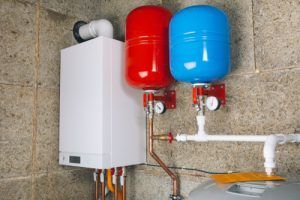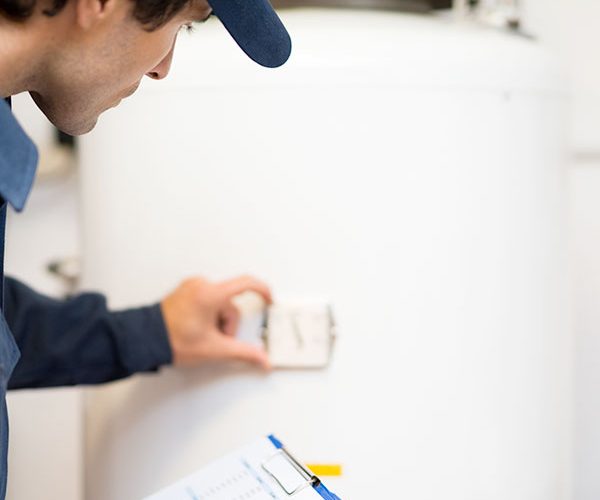Ways to Cope with the Major Hot Water Heater Urgencies
Ways to Cope with the Major Hot Water Heater Urgencies
Blog Article
Here in the next paragraph you might get additional excellent tips with regards to Is Your Water Heater Leaking?.

A hot water heater is just one of the most important fundamental devices that can be located in a home. With hot water heater, you don't need to experience the stress and anxiety of heating water manually every time there is a demand to wash, do the laundry, or the dishes. Nevertheless, there is always an opportunity that your hot water heater would break down similar to a lot of mechanical devices.
It is essential to note any little malfunction and tackle it rapidly before points leave hand. Most times, your water heater starts to malfunction when there is a build-up of debris as a result of continual usage. As a precaution, regular flushing of your hot water heater is advised to stop sediment buildup and prevent practical failure.
Usual water heater emergencies and also just how to handle them
Insufficient hot water
Taking care of an inadequate supply of warm water can be irritating. It may be that the hot water heater can not sustain the warm water demand for your apartment. To manage this problem, you might try to change your heating unit's temperature level dial and also wait for a few minutes. If the issue lingers, you can ask for the aid of a specialist plumber. You might update your water heater to one with a larger ability.
Fluctuating water temperature level.
Your hot water heater could start creating water of various temperature levels normally ice cool or hot warm. In this circumstance, the first thing you do is to make certain that the temperature level is set to the desired level. If after doing this, the water temperature maintains transforming during showers or other activities, you might have a malfunctioning thermostat. There could be a demand to change either the home heating or the thermostat device of your hot water heater.
Leaking hot water heater container.
In this situation, you ought to turn off your water heater, permit it to cool down, and meticulously look for the resource of the trouble. At times, all you need to do is to tighten a couple of screws or pipeline links in situations of minor leakages. If this does not function and the leakage continues, you could need to employ the services of a professional for a suitable replacement.
Tarnished or smelly water
When this occurs, you require to understand if the problem is from the water or the container source. If there is no amusing odor when you run cold water, then you are certain that it is your water heating system that is faulty. The smelly water can be caused by corrosion or the accumulation of bacteria or debris in the water heating unit storage tank.
Verdict
Some house owners ignore little caution as well as minor faults in their hot water heater device. This only leads to more damages and also a feasible full breakdown of your device. You should handle your hot water heater mistakes as quickly as they come up to avoid more expenditures as well as unneeded emergency troubles.
With water heating units, you don't require to go via the tension of home heating water manually every time there is a need to take a bath, do the washing, or the recipes. It might be that the water heating unit can not support the hot water demand for your home. Your water heating unit could begin creating water of various temperatures normally ice scalding or chilly warm. If there is no funny scent when you run chilly water, then you are particular that it is your water heating system that is faulty. The odiferous water can be triggered by rust or the accumulation of bacteria or debris in the water heating system container.
Water Heater Burst: Why This Happens And What To Do Next
Water Heater Explosion Warning Signs
Since storage water heaters are made of metal and store large volumes of heated water, they carry an increased risk of leaking or even exploding as they begin to rust at the fittings and seams over time. If the thermostat controlling the water temperature within the tank is faulty, or if mineral buildup inside the water heater prevents the thermostat from sensing the water’s temperature correctly, the water could become overheated. This will expand its volume within the tank, causing it to press at the tank’s fittings and seams. If these fittings and seams are rusted or corroded, the pressure could result in a leak or even an explosion.
Here are some risk factors and warning signs of an increased risk of water heater leak or explosion:
Your water heater is more than 10 years old. Your water heater makes clanking, banging or rumbling noises as it heats up, indicating that sediment has built up and hardened inside the tank. There is visible rust on the outside of the water heater, especially located at the pipe fittings or the seams that run down the tank. There is rusty water coming from your water heater, indicating that there may be rust building up inside. Your water heater is leaking, which could indicate either a crack somewhere in the tank or a malfunctioning temperature-and-pressure (T&P) relief valve. What To Do When Water Heater Leaks
If you find water dripping or seeping out of your water heater, or pooling around it, it means your water heater is leaking. If you find a leak, it may be best to call a plumbing professional to diagnose the problem and determine how best to handle it. If you choose to tackle it on your own, there are a few things you can do.
TURN OFF THE POWER
Next, shut off the power to the hot water tank at your home’s electrical breaker box. If you don’t shut off the power, the heating elements within the tank could continue to stay hot, which could pose a fire risk.
If you have a gas-powered water heater, you’ll also need to shut off the gas line leading into the tank.
FIND THE LEAK
Now it’s time to determine where the leak is coming from. Likely locations are the T&P valve, the drain valve or one of the pipes or fittings that feed into the top of the tank. If you see any rust or corrosion on the outside of your water heater’s tank, pipes or fittings, these could also be the source of the leak.
REPAIR THE LEAK
Once you determine the source of your water heater leak, you’ll have a better idea of what steps you need to take to fix the problem. It may be a simple fix—such as using a wrench to tighten fittings or replacing the T&P valve—but it may be something more complicated. You may even need to drain the tank, remove the water heater and install a new one.
https://www.abchomeandcommercial.com/blog/water-heater-burst/

Hopefully you enjoyed reading our topic on Common Hot Water Heater Problems. Thanks a lot for taking a few minutes to read our content. For those who liked our blog entry please make sure you remember to share it. Thanks a lot for your time. Visit us again soon.
Choose excellence in emergency plumbing. Report this page